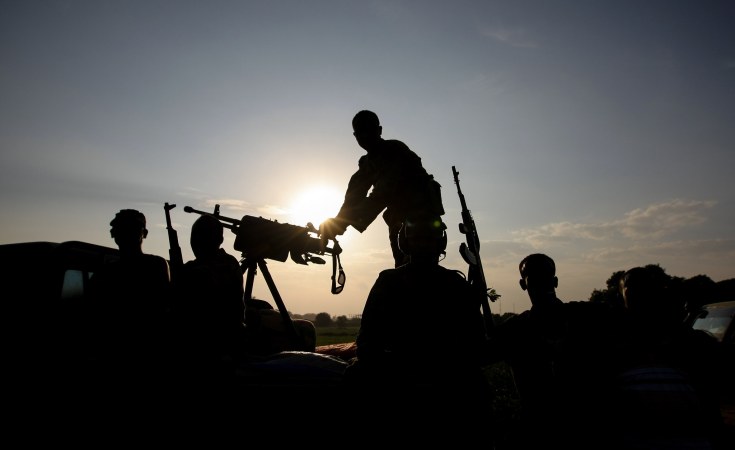Somalia's federal and regional leaders have agreed to increase the number of armed forces and police officers to meet security demands as African Union forces leave the country by the end of next year.
The leaders have agreed the number of national armed forces to be at least 30,000 soldiers and at least 40,000 police personnel, according to the agreement obtained by VOA Somali.
According to the agreement known as the "National Security Architecture" signed by Prime Minister Hamza Abdi Barre and the leaders of federal member states last week, the new number of armed forces do not include the navy, air force and special commando units trained by the United States and Turkey.
The agreement revises a 2017 deal between Somali leaders, which specified the number of military and police to be at least 18,000 and 32,000 respectively. The earliest age to register for the army will be 18 and 62 is the new retirement age.
According to the new agreement, the country's National Intelligence and Security Agency (NISA) will continue to have special armed agents until current security conditions end. Federal member states, which currently have their own intelligence agencies and armed agents, will no longer have these agencies once the country is stabilized.
The new agreement also allows the number of custodial corps to be 5,300 -- comprised of 4,500 federal and 800 prison guards.
Leaders of the Puntland semiautonomous region did not participate in the meeting held in the southwestern town of Baidoa between March 15 and 17. In January, Puntland leaders said they would govern their own affairs like an "independent government" until the federal constitution is completed.
Somali government officials said the new agreement is intended to prepare the country's forces to take over security responsibilities from AU forces.
"The Somali government today is concentrating on transferring security responsibilities from ATMIS (African Union Transition Mission in Somalia) which have been in the country for not less than 15 years," Kamal Dahir Hassan Gutale, national security adviser to Prime Minister Hamza Abdi Barre told VOA Somali.
"The target is that on December 2024 the last AU soldier will leave the country. This is important for Somalia meeting its security responsibilities."
Gutale said paramilitary forces belonging to the regions will be used as stabilization and holding forces in areas captured from al-Shabab militants.
Immediately after the agreement was reached, Somalia President Hassan Sheikh Mohamud flew to Uganda to attend the graduation of newly trained soldiers.
Somalia's national security adviser Hussein Sheikh-Ali confirmed to VOA in January that the government is training 3,000 soldiers in Uganda.
Ali also recently confirmed that troops from neighboring countries will participate in the next phase of military operations against al-Shabab.
Gutale told VOA that the new offensive will commence during Islam's holiest month, Ramadan, which starts this Wednesday.
"There is a rigorous preparation by the Somali national armed forces and all other forces for large operations during Ramadan," he said.
"God willing, we hope Somali forces will achieve [a] big victory."


